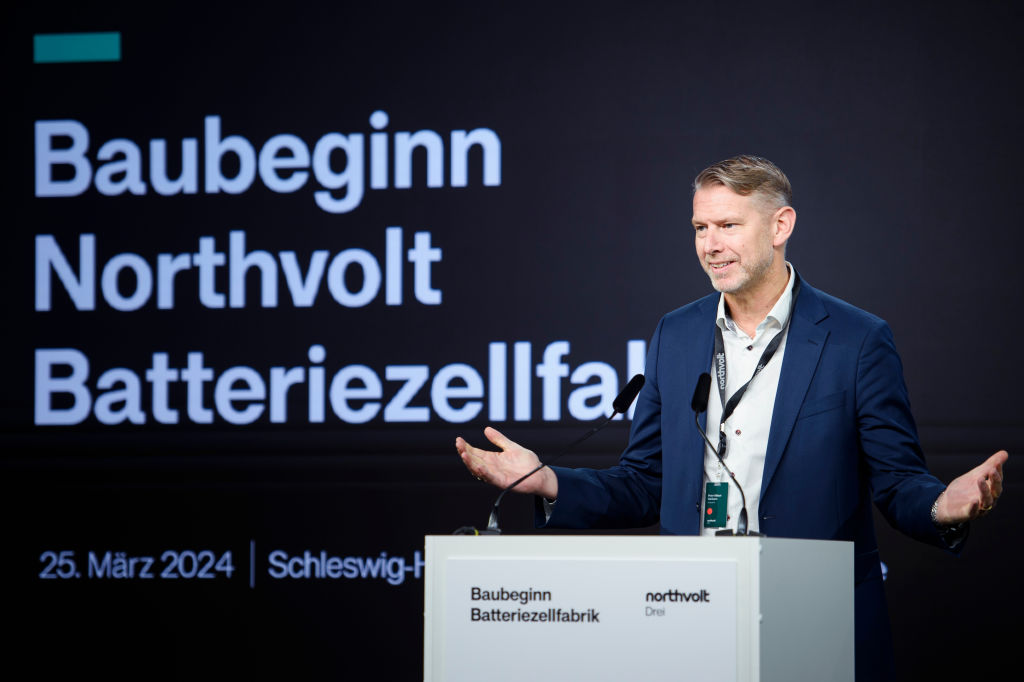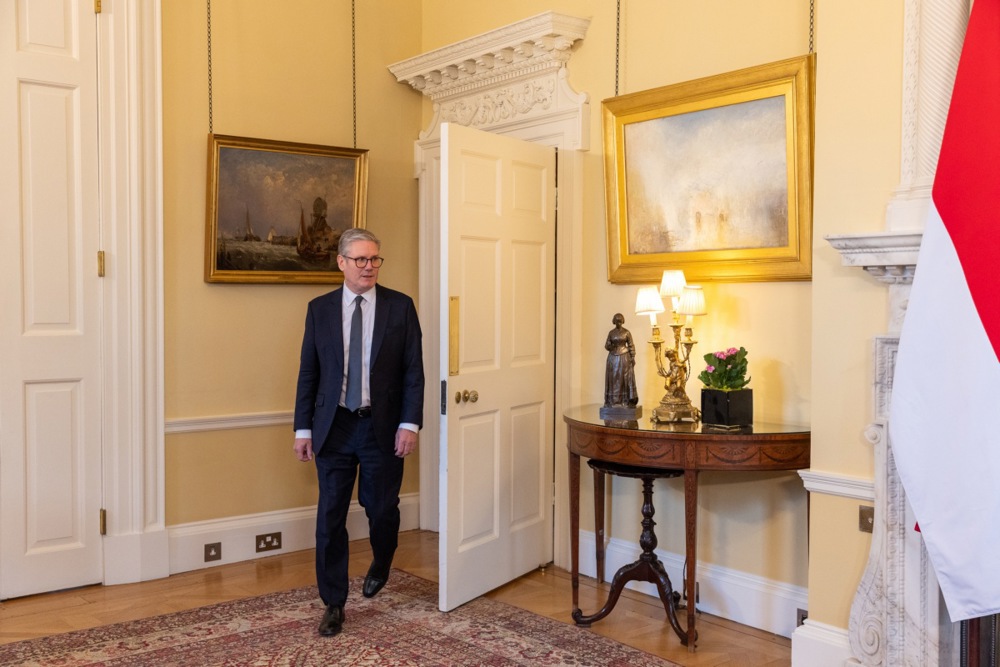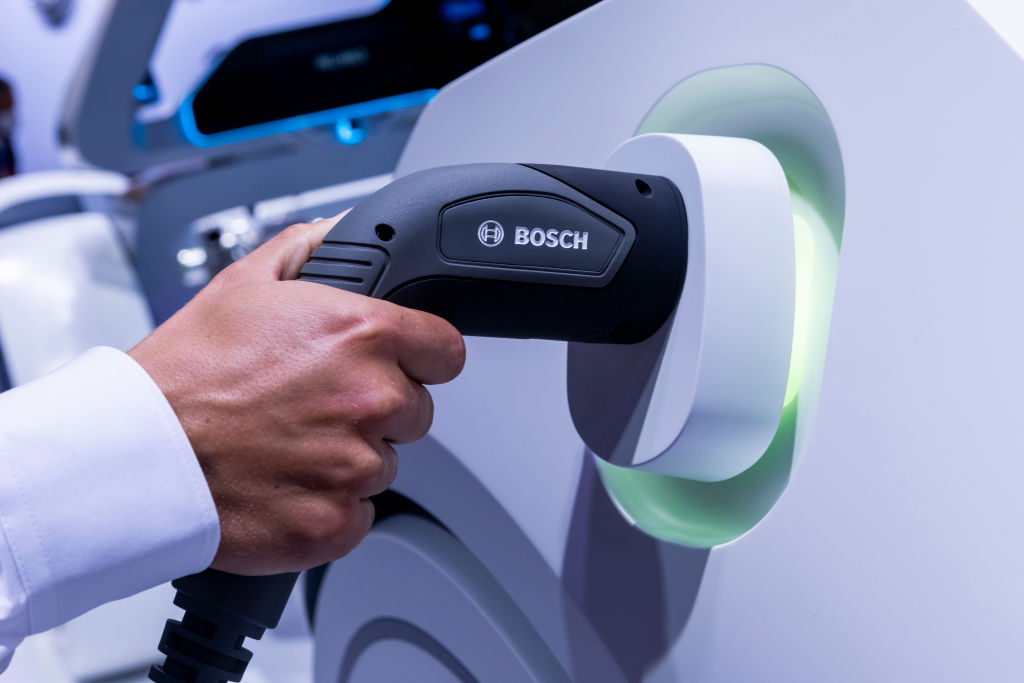Any bankruptcy of Swedish battery developer and manufacturer Northvolt is set to cost the European taxpayer a hefty sum.
The European Commission had backed several loans from the European Investment Bank (EIB), primarily to the Northvolt battery gigafactory in Skellefteå, Sweden, among others.
EC spokeswoman for economic and financial affairs, Veelre Nuyts, told journalists on November 25 that the European Union’s exposure – the unpaid value of the loans — “currently amounts to $313 million [€298 million], under the guarantee of the European fund for strategic investments”.
Those loans were granted with guarantees from the EU budget. At the start of this year, the EIB pumped close to €1 billion into Northvolt’s gigafactory in northern Sweden.
One journalist noted that the EC had previously hailed European battery development as a “success story” and asked if the body still viewed it that way.
Another EC spokeswoman, Johanna Bernsel, said that was the case because there were now 30 gigafactory projects in Europe, with a total manufacturing capacity of 167 GWh. It was unclear if the production capacity of Nortvolt was part of this equation.
Northvolt had been the flagship of the EC’s “green” battery initiative, receiving the lion’s share of attention and funding. Despite this, on November 21, the company still went bankrupt.
Bernsel innsisted that supporting battery production in Europe “remained a priority” and that “the work continues”.
Rather than being an independent green innovator, Northvolt uses old Chinese technology, with 20-year-old equipment that was already out of date when put in place. https://t.co/oCI3Guhuj5
— Brussels Signal (@brusselssignal) October 9, 2024
Asked about its loans to Northvolt, an EIB spokesperson confirmed to Brussels Signal the figure of €313 million outstanding, guaranteed under the European Fund for Strategic Investments (EFSI).
The spokesperson added: “The European Investment Bank is closely monitoring the situation. Together with partners from the public and private sectors supporting the company, we are determined to reach a constructive resolution that will safeguard the EIB’s and the EU’s interests.
“We will continue to support strategic industries driving the transition to a net zero economy and homegrown innovation in breakthrough technologies, which is key to Europe’s prosperity, strategic autonomy, industrial excellence, and more sustainable growth.”
Not only European taxpayers are taking a financial hit with the bankruptcy of Northvolt, as the company carries a debt of 60 billion Swedish krona, or more than €5 billion.
Swedish pension fund AMF is a top-10 shareholder and over the past decade, it has invested around 1.95 billion krona, or €169 million, into the company.
Four other state-owned funds under the Swedish National Pension Funds Act hold 3.7 per cent of the shares after investing millions of euros. Folksam, a prominent Swedish mutual insurance company, put almost €80 million into Northvolt.
The battery maker’s shares have now become virtually worthless although many of Northvolt’s top shareholders were already reviewing the value of their holdings downwards. The company had missed production targets since early September for shippable cells, or cells deemed good enough to be delivered to clients. That included data up to the week ending November 10.
In June, BMW scrapped a contract with Northvolt worth €2 billion.
Volkswagen, holding a 21 per cent stake as Northvolt’s largest shareholder, significantly reduced the value of its investment in the company over the past year, according to the Financial Times on November 25.
VW had set the book value of its shares at €693 million at the end of last year, 25 per cent lower than the year before. This year, the value of the shares plummeted further.
US bank Goldman Sachs, the second-largest shareholder with an exposure of at least $896 million (€853 million) to Northvolt, plans to write down its stake to zero by the end of 2024, the Financial Times reported on November 23.
Just weeks ago, Goldman Sachs was said to be exploring ways to rescue the struggling company, including potential collaborations with other investors. While the bank’s active involvement was deemed crucial to securing further funding, that lifeline ultimately never materialised.
Swedish EV battery maker Northvolt has filed for Chapter 11 bankruptcy protection in the US while seeking additional funding, with CEO Peter Carlsson resigning shortly after. https://t.co/dGUOJf3cDH
— Brussels Signal (@brusselssignal) November 22, 2024
With Northvolt having filed for Chapter 11 bankruptcy in the US on November 21, it can keep operating while trying to restructure its debts. This means the company will continue honouring customer contracts, paying suppliers and employees.
It had long been touted as Europe’s response to the supremacy of similar Asian companies but it never managed to fulfil that ambition, despite receiving huge amounts of funding, especially from governments and government-aligned institutions.
In total, Northvolt, founded in 2015 by two former Tesla executives, raised around €13 billion from lenders, a record amount by European start-up standards.
Its customers placed $55 billion in orders but the company was unable to scale up production as required.
Its failure reflects badly on the EU, which, next to losing a huge amount of money, remains dependent on China for battery production while faced with poor sales of electric vehicles at home and a wider crisis within the car industry while Asian producers are scaling up.





